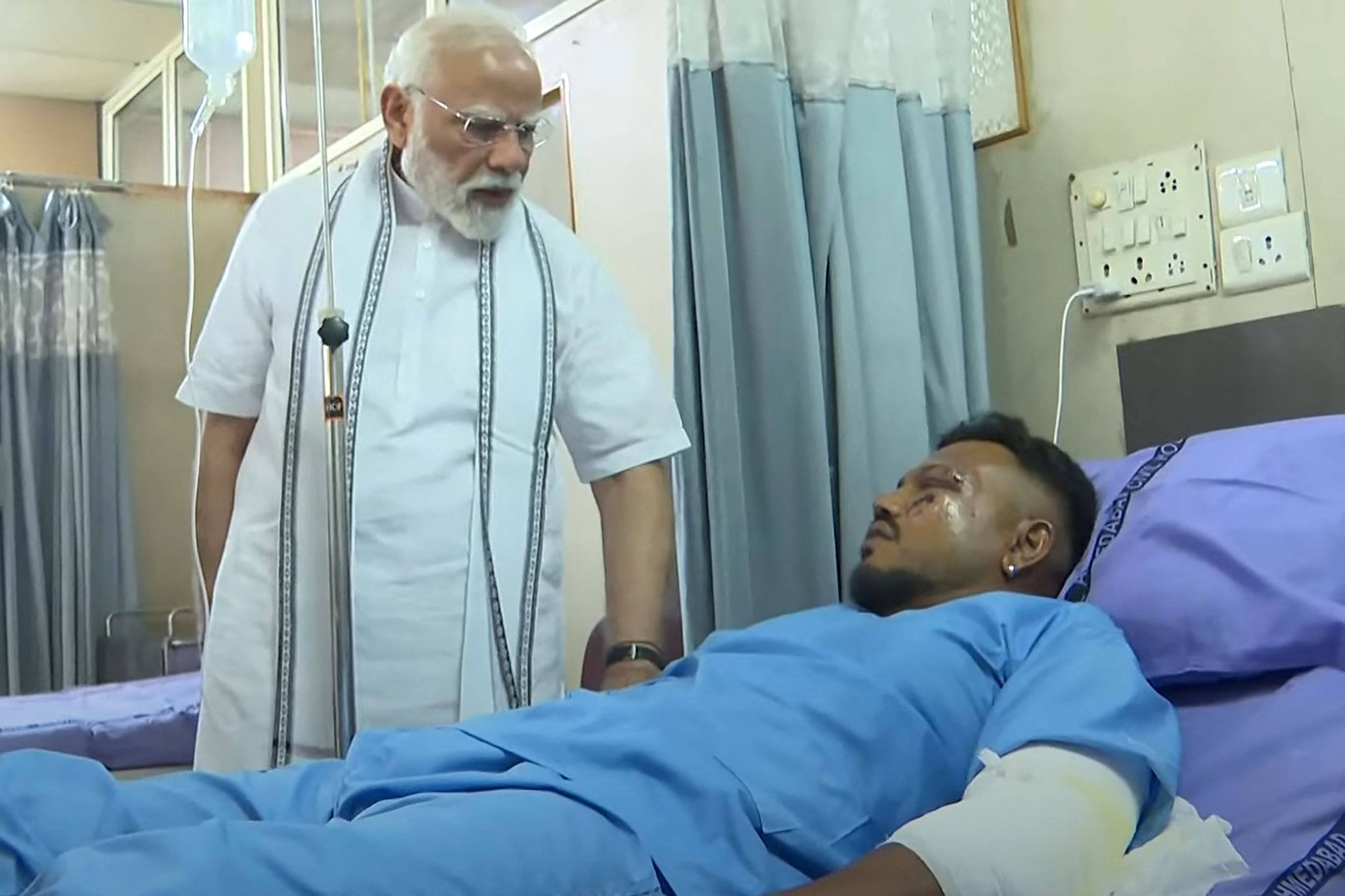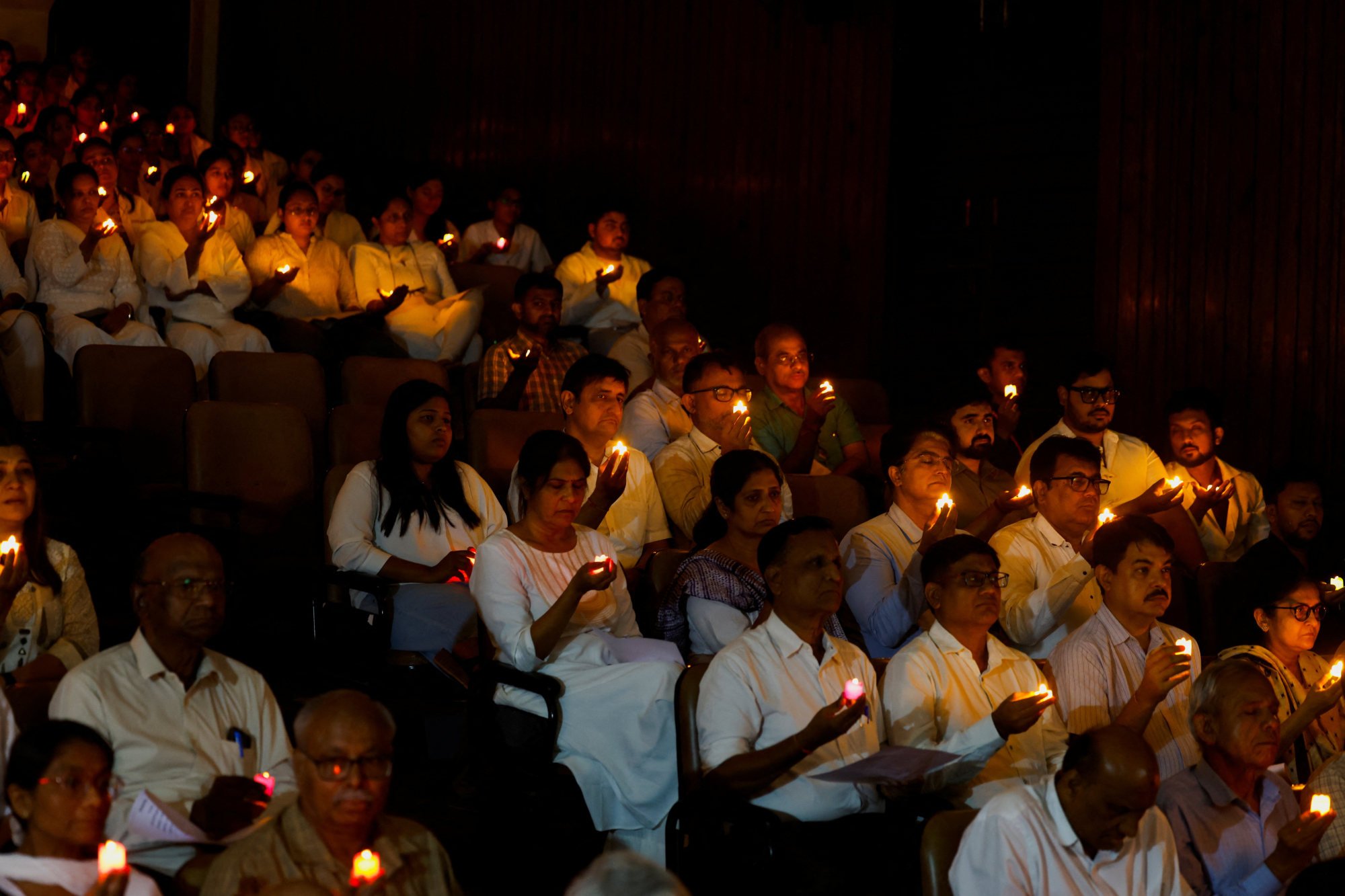Following Air India crash, demand for sole survivor’s seat 11A soars
However, aviation experts caution that it is not the seat number but the location which matters most

Demand for “lucky” seat 11A has spiked following the lone survivor’s miraculous escape in the fatal Air India crash – despite aviation experts warning that the specific seat number does not offer any proven safety advantage.
Travel agents have reported a sharp surge in passenger inquiries about seat 11A, where Viswash Kumar Ramesh was sitting when the London-bound aircraft crashed into a residential area in Ahmedabad shortly after take-off.
The 40-year-old British national was the lone survivor among the 242 passengers and crew members on board. On Wednesday, he was discharged from Ahmedabad Civil Hospital, six days after the disaster that killed his brother.
Ramesh’s unlikely escape is now reshaping how travellers choose their seats, according to The Times of India newspaper.
When he flies to the United States from New Delhi this week, businessman Jitender Singh Bagga asked to be seated next to an emergency exit.
“It has to be a seat next to the emergency exit,” he said. “I am willing to fork out any extra amount for it. If seat 11A is next to the emergency door of the British Airways flight I intend to take … I want to be in it.”

Kolkata resident Rajesh Bhagnani also asked his travel agent to book a seat next to the emergency exit for his coming flight to Mumbai. “I know that life and death is a matter of destiny, but I still want to have my best shot. Nothing like seat 11A if there is an emergency exit next to it,” he said.
For some, luck is in the number. “Some even want 11A even if it is not next to the exit,” Anil Punjabi, a national committee member of the Travel Agents Federation of India, told The Times of India.
Anjani Dhanuka, chairman of the eastern region chapter of the Travel Agents Association of India, said the seat number offered “mental peace”. “It has got to do with mindset and belief in luck. The fliers say it is for their peace of mind.”
An eerie coincidence is fuelling 11A’s reputation as a “lucky seat”.
Thai actor-singer Ruangsak Loychusak posted on social media that he had occupied the same seat when he survived the Thai Airways flight 261 crash in southern Thailand in December 1998.
“This seat will be very difficult to reserve in the future,” Buranasompob Pongrapee commented below Ruangsak’s post.
However, aviation experts caution that it is not the seat number but the location.
“In this particular instance, because the passenger was sitting adjacent to the emergency exit, this was obviously the safest seat on the day,” Ron Bartsch, chairman at AvLaw Aviation Consulting, told the Independent newspaper. “But it’s not always 11A, it’s just 11A on this configuration of the Boeing 787.”
“My suspicion is that because of the nature of the impact, [Ramesh] was in a strong part of the aeroplane at the front edge of the wing,” John McDermid, a professor and Lloyd’s Register chair of safety at the University of York, told UK newspaper The Guardian. “There is not just the fuselage, but the extra structure of the wing to protect from the compression of the fuselage.”
Emergency exit row seats typically cost more as they offer extra legroom. But before Thursday’s crash, most passengers did not like those rows as the seats do not recline much and there is no space for hand luggage.
That extra legroom might have potentially given Ramesh crucial room to escape.
“He seems to have been lucky in that: a) he survived the trauma of the impact, b) he wasn’t severely injured in that crash, and c) he was sitting right by the No 2 exit,” Ed Galea, an expert in fire safety and evacuation at the University of Greenwich, told The Guardian. “Whether he used that, or exited via a rupture that was close by, is not clear. But he was very close to an exit point.”
Galea said he would always try to reserve a seat within five rows of an emergency exit as his research had shown that passengers in those rows had a greater chance of surviving a minor crash.